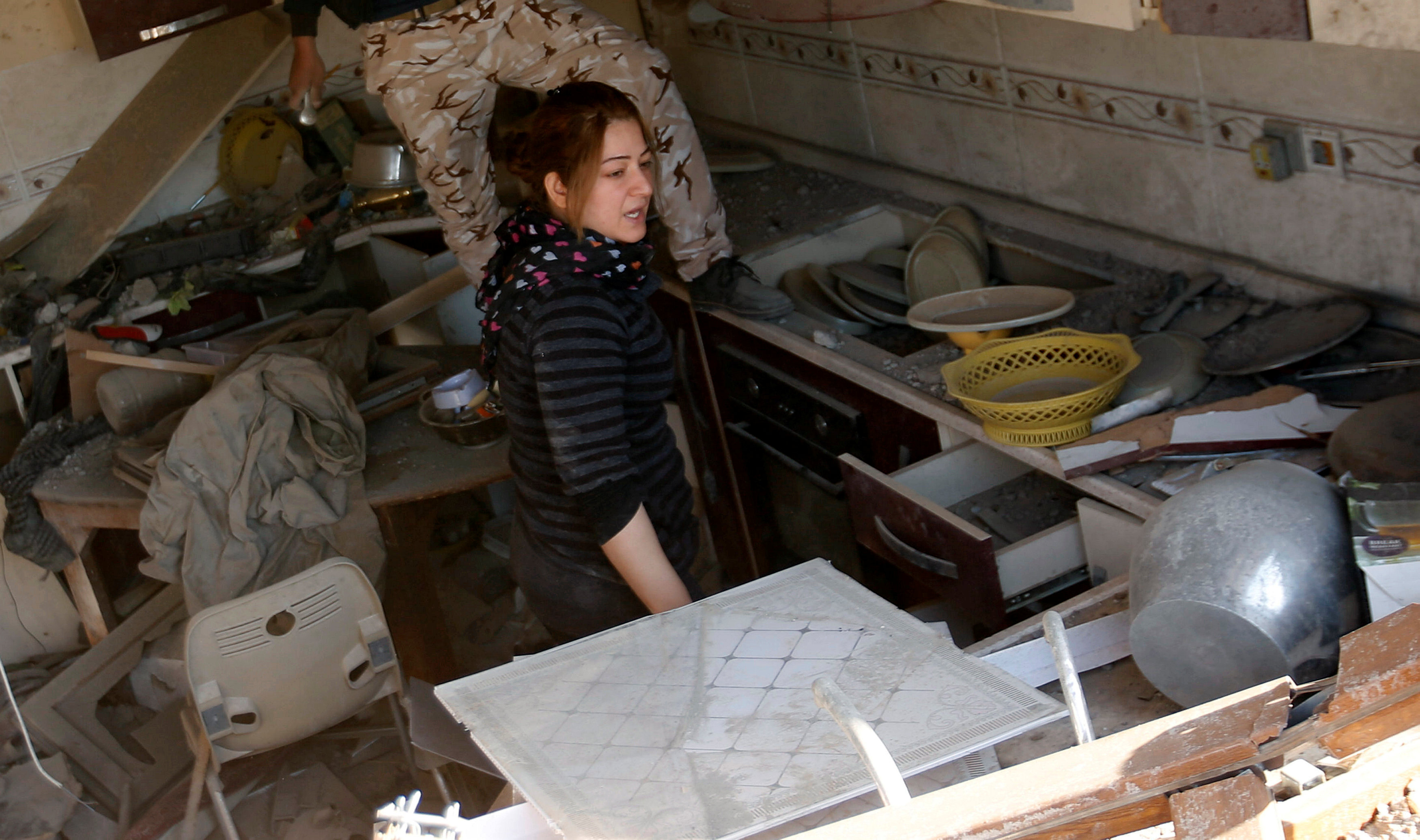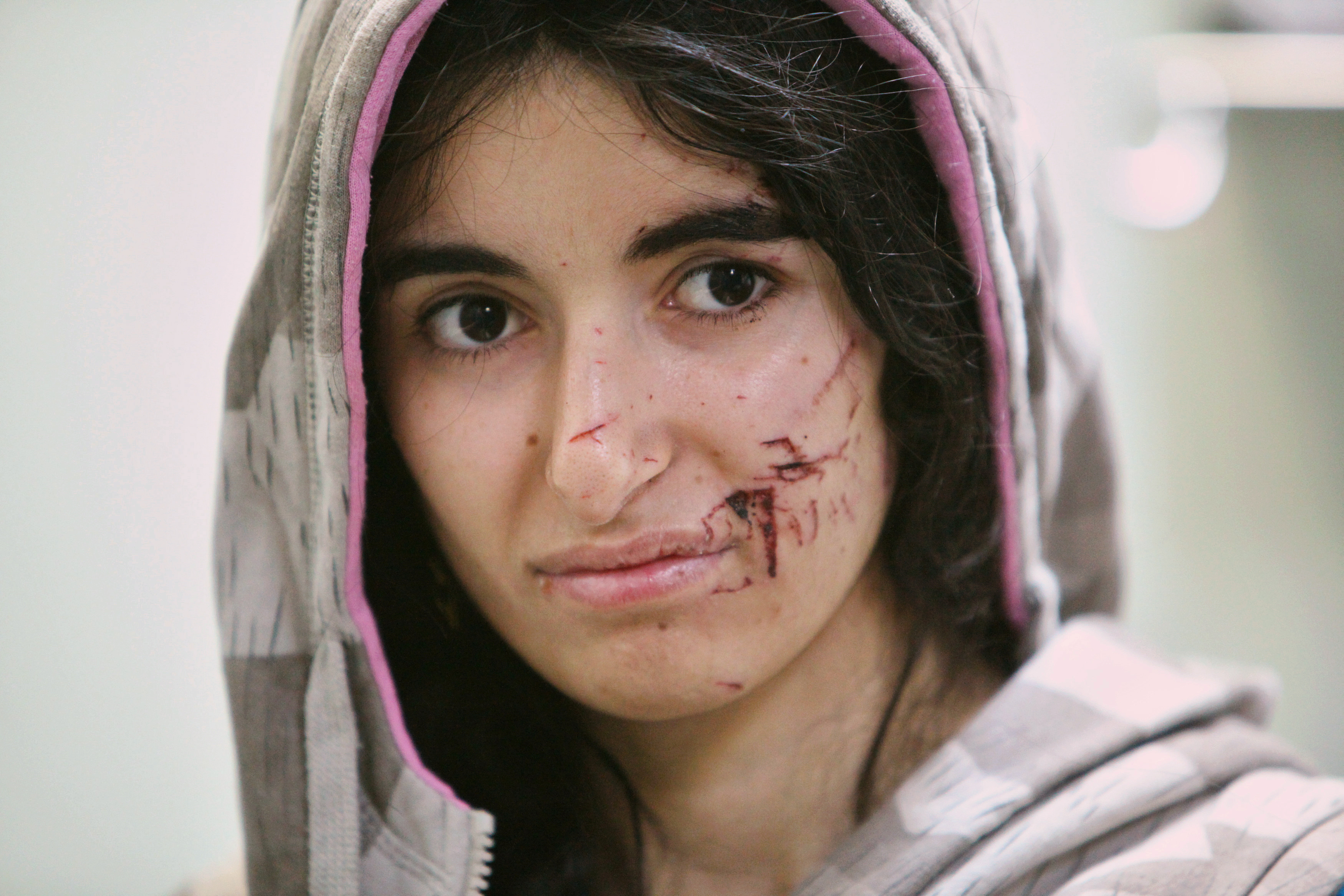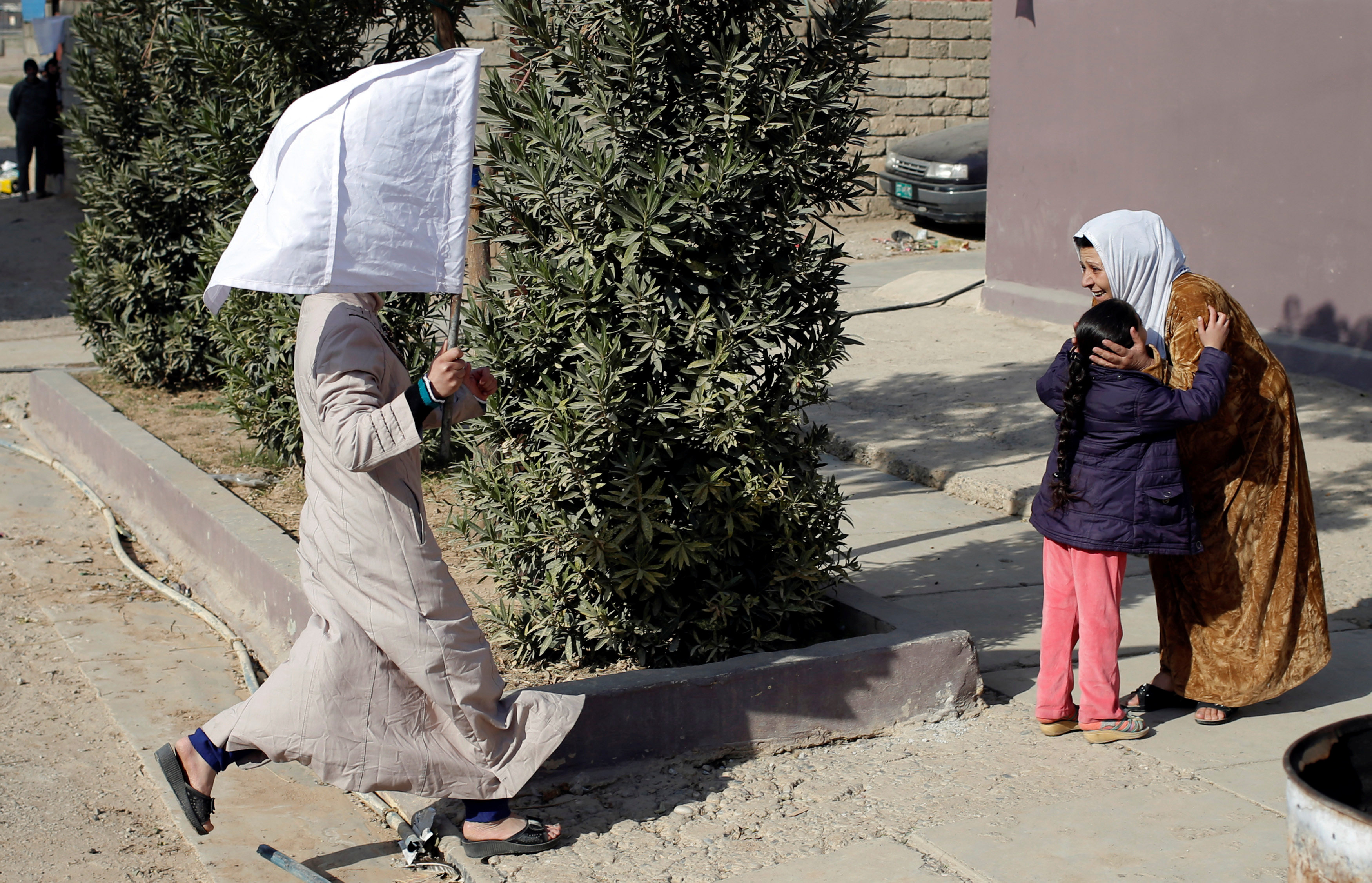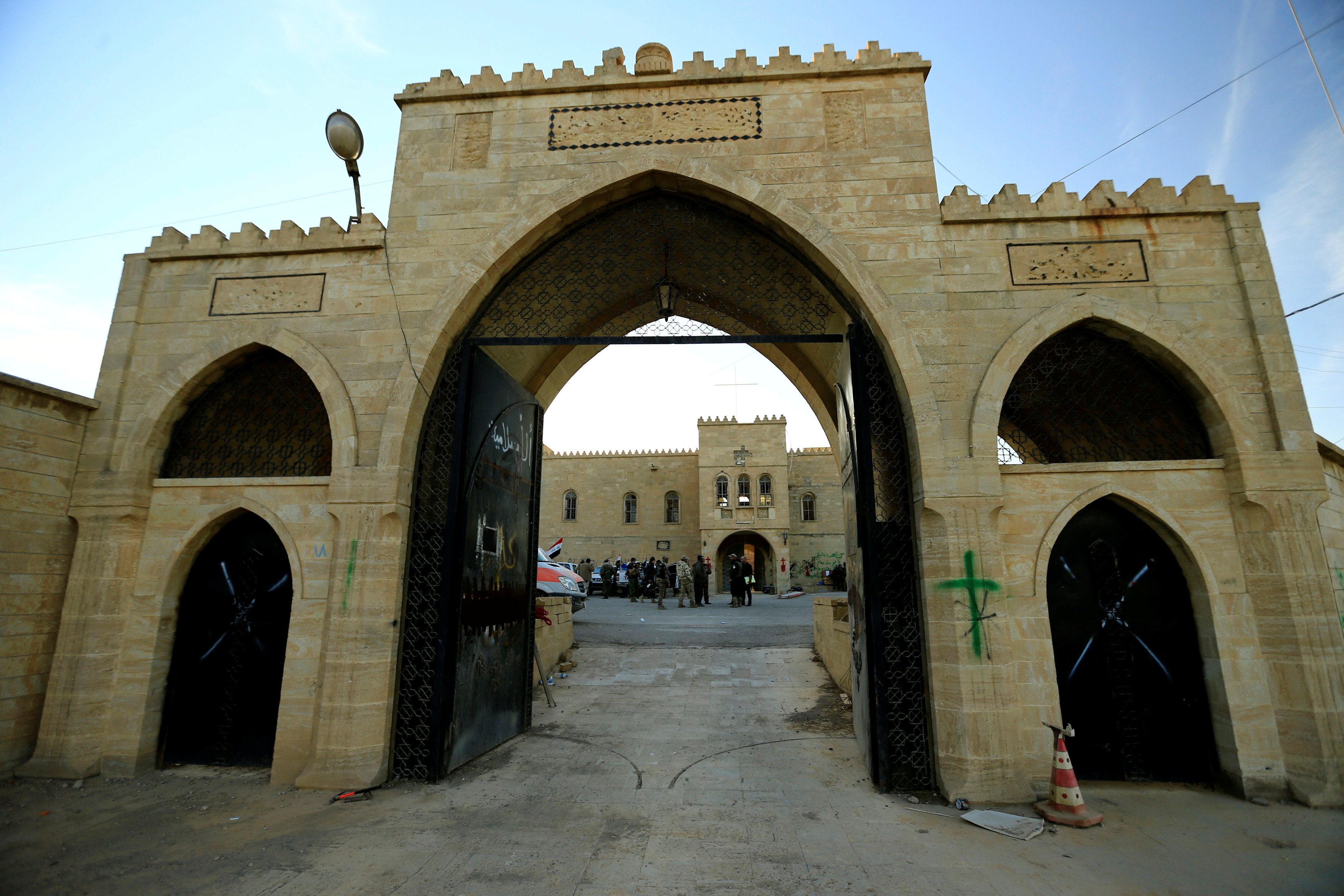
SHAYYALAH AL-IMAM, Iraq (Reuters) – As mortar bombs landed ever closer, Sunni tribal fighters preparing to attack Islamic State seemed more preoccupied by the failures of Iraq’s political class than the militants trying to kill them.
The men – and one woman – from the Lions of the Tigris unit gathered on Wednesday in Shayyalah al-Imam, a village near Mosul, with some of their leaders expressing deep distrust of the politicians and saying Iraq’s governance must change once Islamic State is defeated.
“Iraq needs serious reforms,” said Sheikh Mohammed al-Jibouri, the top commander of the tribesmen. “Only serious reforms will lead to the unity of Iraq.”
The unit is part of the Popular Mobilisation Committee, or Hashid Shaabi, which was formed to take on Islamic State after the hardline Sunni group swept through northern Iraq in 2014, facing little resistance from the army.
Hashid Shaabi is mostly comprised of Shi’ites but there are also Sunnis, such as the 655-strong Lions of the Tigris unit.
Their efforts along with government soldiers to capture several villages are part of an offensive to oust Islamic State from its stronghold of Mosul, Iraq’s second largest city.
On the surface, their participation lends credibility to the Shi’ite-led government in Baghdad, accused by Sunnis of marginalising their minority community. It denies the accusation.
Prime Minister Haider al-Abadi has been struggling to persuade Sunni tribesmen who helped U.S. forces defeat Al Qaeda during the 2003-11 occupation to join the battle against Islamic State. He has declared a war on corruption in government and army but faces resistance.
The show of force in Shayyalah al-Imam points to progress, with soldiers and tribesmen standing side-by-side.
But some of the men doubted the politicians have the resolve or desire to unify Iraq, gripped by sectarian bloodshed since the U.S.-led invasion toppled Saddam Hussein.
Another tribal commander, Abdel Rahman Ali, even saw Islamic State as part of an elaborate plot to weaken Sunnis, underlining the pervasive mistrust in Iraq.
“Everyone knows Islamic State will be defeated. The conspiracy was designed to hurt Iraq, especially Sunnis, after we liberate Mosul,” he told Reuters. “Our own politicians are behind it.”
UNITY OR PARTITION
Officials have said the Mosul offensive, the biggest ground operation since 2003, could make or break Iraq. If it inflames sectarian tensions in the predominantly Sunni city, the fighting could lead to Iraq’s partition, they warn.
But if the campaign goes smoothly and a new administration in Mosul is seen as non-sectarian, that could help the country to unite.
Ali said federalism modelled on the autonomous Kurdish region in northern Iraq is the best option, even though that has created friction with Baghdad over oil resources.
Like many Sunnis, the minority who dominated under Saddam and then watched the majority Shi’ites rise to power, he is disillusioned with a governing system that allocates posts according to sects. Sunnis themselves are divided and lack a strong leadership, adding to Iraq’s fragmentation.
As the men spoke, Islamic State militants fired more mortar bombs towards their unit. One day earlier, suicide bombers attacked the area, a collection of bland cement houses choked by dust, overlooking the desert.
A few hundred metres away, soldiers stood on a rooftop, focused on two suspected car bombs in the distance.
Nashwan Sahn, a Sunni tribesmen who has been fighting Islamist militants in Iraq for 11 years, taking on al Qaeda and then Islamic State, kept warm at a small campfire where freshly-slaughtered chickens had been barbecued. A few raw livers lay scattered on a tray. Beside him was a Shi’ite soldier.
Both said they support Iraqi unity but neither had any faith in the politicians to manage the sectarian tensions which provoked a civil war in 2006-2007.
“Federalism would be good but only if we have good leaders,” said Sahn, who criticised all politicians including fellow Sunnis. “We liberate these villages where Sunnis live. Yet Sunni politicians who have constituents here have never visited us at the frontline.”
Miaad Madaad, the only female member of the Lions of the Tigris, clutched an AK-47 assault rifle and vowed to defeat Islamic State. “The last time they came to my house and threatened me I threw rocks at them and called them dogs,” she said proudly.
Islamic State militants beheaded her father-in-law and brother-in-law. But her story illustrates the sectarian and ethnic complexities and mistrust facing Iraq.
When she and her husband fled to the relatively stable Kurdish region earlier this year, he was arrested by Kurdish fighters who suspected him of being an Islamic State fighter.
(editing by David Stamp)












